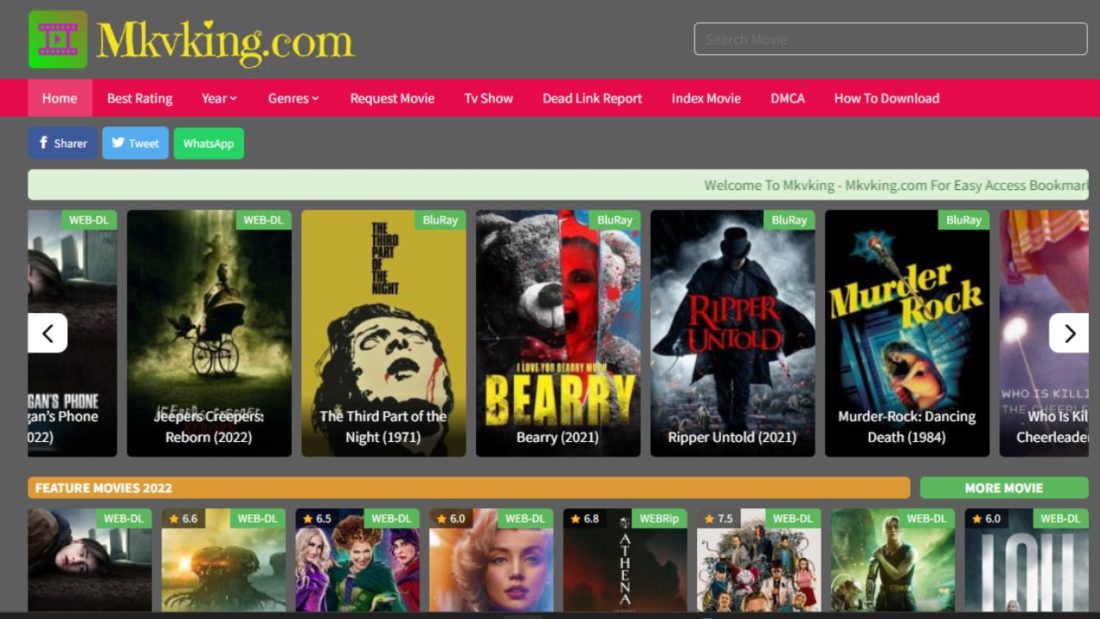Convert MKV To MP4: Easy Guide & Best Tools For 2024
Are you wrestling with the challenge of converting those MKV files into a more universally compatible format, like MP4? Navigating the digital landscape of video formats can be a daunting task, but the process of converting MKV to MP4 is far more accessible than you might think.
The proliferation of digital media has brought with it a multitude of file formats, each with its own strengths and weaknesses. MKV, or Matroska Multimedia Container, is a powerful format known for its flexibility, capable of holding multiple video and audio tracks, subtitles, and chapter information. However, its versatility can also be its downfall when it comes to broad compatibility. Many devices and platforms favor the MP4 format, which has become a standard due to its widespread support.
The need to convert MKV to MP4 often arises when you wish to play your videos on a device that doesn't natively support MKV, such as older smart TVs, mobile phones, or gaming consoles. Furthermore, sharing MKV files with friends and family can be problematic if they lack the necessary codecs or players. The conversion to MP4 ensures broader accessibility and simplifies the sharing process.
Fortunately, several straightforward methods exist to convert MKV files to MP4, making the process a breeze even for those less familiar with video editing or conversion software. These methods range from online converters, offering convenience and ease of use, to dedicated software applications that provide more control and advanced features. Regardless of your level of technical expertise, there's a solution that fits your needs.
One of the simplest approaches involves the use of online conversion services. These platforms typically offer a user-friendly interface, requiring only that you upload your MKV file and select MP4 as the desired output format. The service handles the conversion process, and you can then download the converted MP4 file. CloudConvert is one such example, supporting not only MKV and MP4 but a wide array of other video formats, and offering batch conversion capabilities to streamline your workflow.
For those who prefer a software-based solution, numerous applications provide robust MKV to MP4 conversion capabilities. These programs often offer advanced options such as the ability to customize video and audio settings, including resolution, bitrate, and codecs. Many of these programs support batch processing, allowing you to convert multiple MKV files simultaneously, saving you considerable time and effort. Vidmore Player, for instance, is a video player that also offers conversion options to play your files without losing quality, while others like Handbrake are specifically designed for encoding and converting video files.
- Gymkhana Telugu Movie Updates Latest News Streaming Explore Now
- Latest Updates Movierulz Movie News Reviews
The process of converting MKV to MP4 typically involves these steps: First, you must select the MKV file you wish to convert. This is usually done by clicking a "Choose Files" or "Upload" button within the chosen software or online service. Next, you need to specify MP4 as the output format. Many converters automatically default to this format, but always double-check the settings to ensure the correct output. Finally, you initiate the conversion process by clicking a "Convert" or "Start" button. The conversion time will vary depending on the file size and the processing power of your computer or the online service's servers.
Beyond the technical aspects of conversion, there are practical considerations to keep in mind. One is the quality of the output. While most converters strive to maintain the original video and audio quality, some may introduce compression artifacts or other degradations. It's always wise to experiment with different settings and compare the output files to ensure that the quality meets your expectations. Selecting a reliable converter that utilizes both open-source and custom software, as CloudConvert does, can help to ensure the highest quality conversions.
Another factor to consider is the speed of the conversion process. Online converters may be convenient, but they can be slower than software-based solutions, particularly if you have a large MKV file or a slow internet connection. Software applications, on the other hand, can leverage your computer's processing power to convert files more quickly. The best approach often depends on your specific needs and priorities.
The legal implications of converting and sharing video files should also be considered. If the MKV files contain copyrighted material, you must ensure that you have the appropriate rights or permissions before converting and distributing them. Always respect copyright laws and avoid any actions that could infringe upon the rights of content creators.
Moving beyond the technical and practical aspects, it's important to understand the broader context of video formats and their role in the media landscape. MKV and MP4 are just two examples of the many formats available, each catering to different needs and applications. While MP4 has become a de facto standard for its compatibility, other formats such as WebM and AVI also have their place, particularly for online streaming and specific use cases.
The evolution of the cinema industry is another important aspect to consider. In recent years, the way we consume movies and television shows has changed dramatically. Streaming services have revolutionized the industry, offering unprecedented access to content. Websites like Mkvking, which started as a small platform, have grown to become popular destinations for streaming movies and TV shows. Furthermore, digital downloads and offline viewing options have become increasingly common, providing viewers with greater flexibility and control.
As you delve deeper into the world of video formats, you'll encounter technical details such as codecs, bitrates, and resolutions. Understanding these concepts can empower you to make informed decisions about your video files and optimize them for different devices and platforms. For instance, choosing the right codec can significantly impact the file size and quality of your MP4 files. Experimenting with different settings and understanding the impact of each choice can allow you to achieve the desired results.
The story of how to convert MKV to MP4 is not just about technology. It's also about how we interact with media, how we share content, and how we navigate the digital world. Whether you're a casual viewer who wants to watch movies on your phone, or a content creator who wants to reach a wider audience, the ability to convert video files is an essential skill.
Finally, when you begin this journey of format conversion, keep a few key principles in mind. Select reliable software and online services from trusted sources, back up your original files, and always prioritize your security and privacy. With a little bit of practice and the right tools, you can master the art of converting MKV to MP4 and enjoy your video files on any device.
Another point of note is the historical and technical aspects of these formats. The Matroska multimedia container (MKV) format, for example, has a rich history, design, and technical structure, and its always intriguing to compare it to the widely popular MP4 format. Many might wonder what is the best player, or how to get the best quality. One tool to consider is the Vidmore Player, a lossless MKV player for Windows and Mac. Other options might be available too.
The information provided in this article is for informational purposes only. The author makes no warranties about the completeness, reliability, and accuracy of this information. Any action you take upon the information on this website is strictly at your own risk. The author will not be liable for any losses and/or damages in connection with the use of this article.
Article Recommendations
- Where To Watch Alternatives Your Guide To Vega Vegamoviesist
- 2025 Movie Guide Watch Online Reviews More Movierulz Beyond



Detail Author:
- Name : Mr. Floyd Von
- Username : agoldner
- Email : leon57@ernser.com
- Birthdate : 1997-02-23
- Address : 2434 Carmen Forges Port Johannshire, KY 14887-4363
- Phone : +1 (740) 441-6515
- Company : Ruecker, Walter and Hickle
- Job : Educational Counselor OR Vocationall Counselor
- Bio : Et aut rerum est ut. Soluta architecto reprehenderit ut nisi commodi ut. Id laboriosam quia sunt beatae mollitia rerum.
Socials
tiktok:
- url : https://tiktok.com/@thiel1970
- username : thiel1970
- bio : Voluptates at officia dolorem nostrum illum.
- followers : 1068
- following : 2296
facebook:
- url : https://facebook.com/savannathiel
- username : savannathiel
- bio : Aliquam fugit exercitationem aut vero possimus.
- followers : 3209
- following : 1566
linkedin:
- url : https://linkedin.com/in/sthiel
- username : sthiel
- bio : Est iure ullam et officia.
- followers : 2639
- following : 1863
instagram:
- url : https://instagram.com/savanna_real
- username : savanna_real
- bio : Sit quos qui saepe. Modi distinctio ut possimus dolorum saepe. Deserunt quibusdam hic dolores.
- followers : 6419
- following : 915
twitter:
- url : https://twitter.com/thiels
- username : thiels
- bio : Dignissimos eos et ea enim provident. Dolorem blanditiis repudiandae aperiam minima architecto necessitatibus. Repellat dolor qui accusantium ullam.
- followers : 4939
- following : 1748